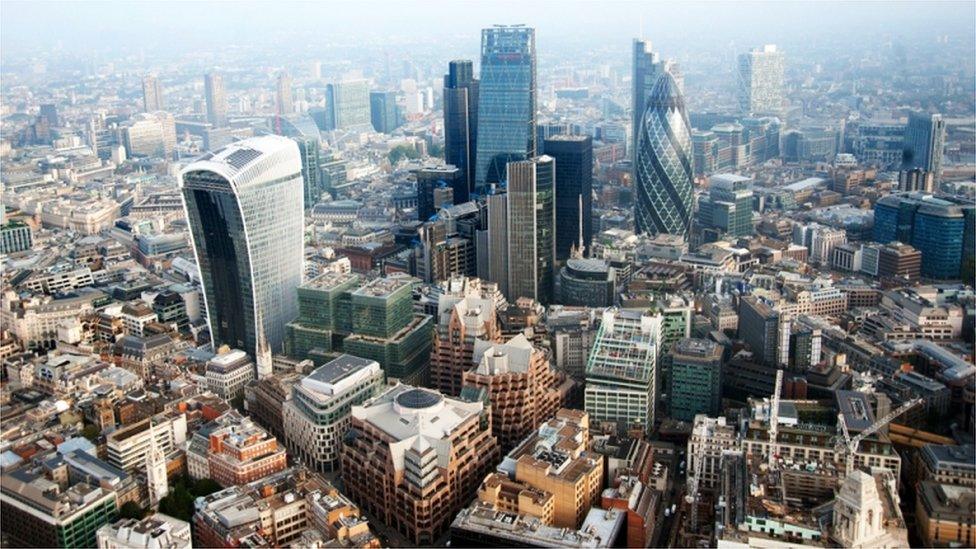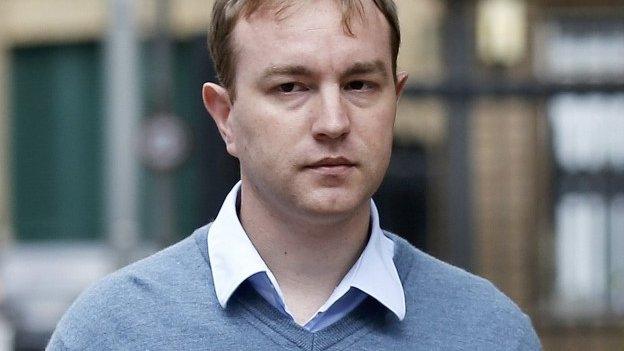Libor trial: Cleared brokers 'were scapegoats' for scandal
- Published
The six defendants: (LtoR) Darrell Read, Noel Cryan, Colin Goodman, Terry Farr, Danny Wilkinson and James Gilmour spoke to Emma Simpson outside court
Six former City money brokers who have been cleared of helping to rig the Libor lending rate say they were made scapegoats for the scandal.
One of the men said any questions about the affair should have been put to people who were senior to them.
The defendants had been accused of helping jailed banker Tom Hayes manipulate the rate that banks use to lend money to one another.
The Serious Fraud Office (SFO) defended its decision to bring the charges.
The brokers, cleared after a four-month trial, had worked for financial firms Icap, Tullett Prebon and RP Martin.
Prosecutors had said the men had conspired to rig Libor (an acronym for the London interbank offered rate) in exchange for treats such as takeaway curries and drinks.
Darrell Read, 50, of Wellington, New Zealand, was found not guilty on Thursday on two counts of conspiracy to rig the rate, which helps determine borrowing costs for about $450 trillion (£314 trillion) of contracts and consumer loans worldwide.
His five co-defendants Noel Cryan, 49, of Chislehurst, Danny Wilkinson, 48, of Hornchurch, Colin Goodman, 53, of Epsom, James Gilmour, 50 of Benfleet, and Terry Farr, 44, of Southend-on-Sea, were found not guilty on Wednesday.
'Sense of relief'
The final verdict in the trial prompted cheers from the five other brokers who were present in court to support Mr Read.
Outside Southwark Crown Court, Mr Read said he had a "great sense of relief" that the case was over.
Mr Cryan said the last few years had been very difficult.
"Realistically we should never have been here. We feel we've been scapegoated. They've gone to the bottom of the food chain - to the brokers.
"Six Yen brokers answering the Libor question. Really? If there are things to be answered then we're not the ones that should be answering the questions."
He added: "The SFO needs to question whether they should have spent that much time and money bringing this case against six money brokers."
David Green, director of the SFO, said: "The key issue in this trial was whether these defendants were party to a dishonest agreement with Tom Hayes.
"By their verdicts the jury have said that they could not be sure that this was the case.
"Nobody could sensibly suggest that these charges should not have been brought and considered by a jury."
In August, Mr Hayes became the first person to be convicted over the Libor rate-rigging scandal. He was sentenced to 14 years in prison for manipulating the rate while working at UBS and Citigroup between 2006 and 2010.
He made about $300m for his employers during that time.
His sentence was reduced to 11 years on appeal.
- Published3 August 2015

- Published27 January 2016

- Published21 December 2015
